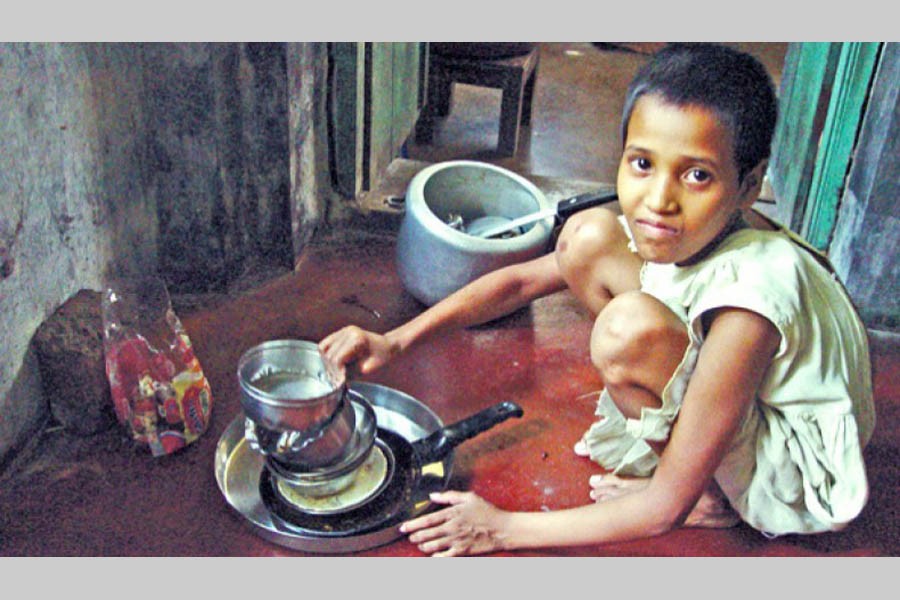Discourse on cruelty to and sexual abuse of domestic helps -- mostly underage poor girls -- has remained partial and flawed. Society's double standard could not be more conspicuous here. If child labour is illegal, employment of the majority of girls in residences of city people should not have taken place at all. Ideally, the young ones were supposed to be in schools and with their families. At home in villages, their parents cannot provide for them or in case they lose one parent or both, their means of living is totally absent and physical safety is at risk. So here is an issue that society feels shy of facing squarely. The socio-economic condition of the country is at a stage where such employment cannot be done away with for practical reasons. Now the so-called educated and well-off people at whose homes they work show little understanding that at their age, it is only natural to do mistakes in performing their duties. The employers' daughters and sons of the same age or much older are not required to do the smallest of domestic chores.
In a just society, all children were supposed to be treated equally and to go to school and the state was duty-bound to create the right condition for this. Unfortunately, the state feels no obligation for children of the poor and backward communities. In a situation like this, it is better to call the spade a spade. Some children from the poor and hapless families will have to work as domestic helps as long as the state does not take their responsibility. Now if they have to give their labour in a well-off household, the recruitment has to be formalised. The ministries of labour and employment and social welfare should be involved with the process. No child help will be employed without the knowledge of the former. It must assign one of its wings to oversee the employment. The latter should monitor by forming monitoring cells under it.
Clearly, this is an uncaring society. Domestic child workers' cause is not promoted or defended the way it should have been because they stay on the fringe of society, they are utterly marginalised. The organisations working for them even cannot establish their rights in the first place because there is no law favouring them. Even when they are physically or sexually abused and in extreme cases killed, the poor parents are persuaded to settle the disputes out of court in exchange for money. How many perpetrators or killers of domestic helps have been sent behind the bar?
Experts working for domestic child workers have rightly demanded formulation of laws to deal with this special issue. Formalisation of employment will be the first step in that direction. But this should be for a specific period beyond which such recruitments should be considered illegal. Right now a few organisations have started imparting training for domestic helps so that they are knowledgeable about handling modern gadgets and render quality service. Arrangement of similar training for underage children before their placement can be of help. They must receive all kinds of support at their working places.


